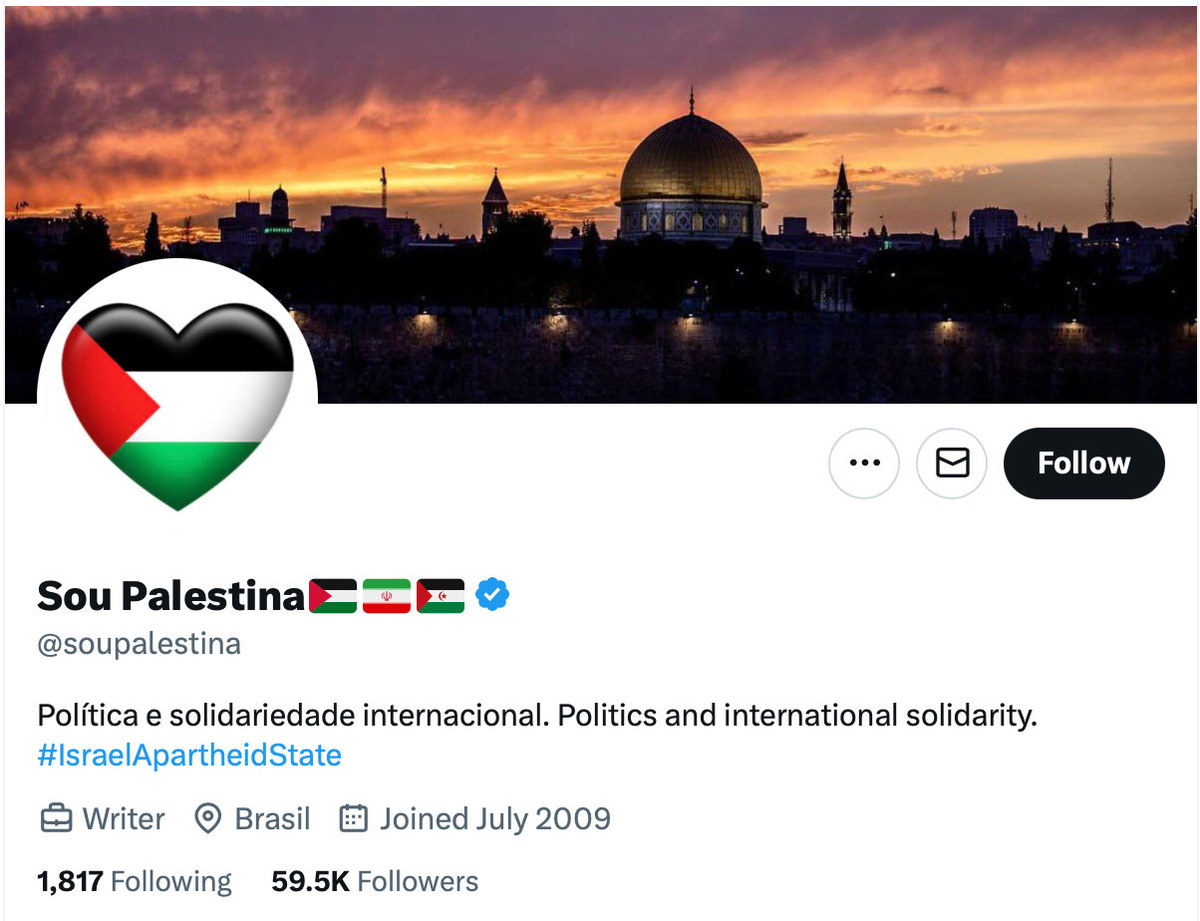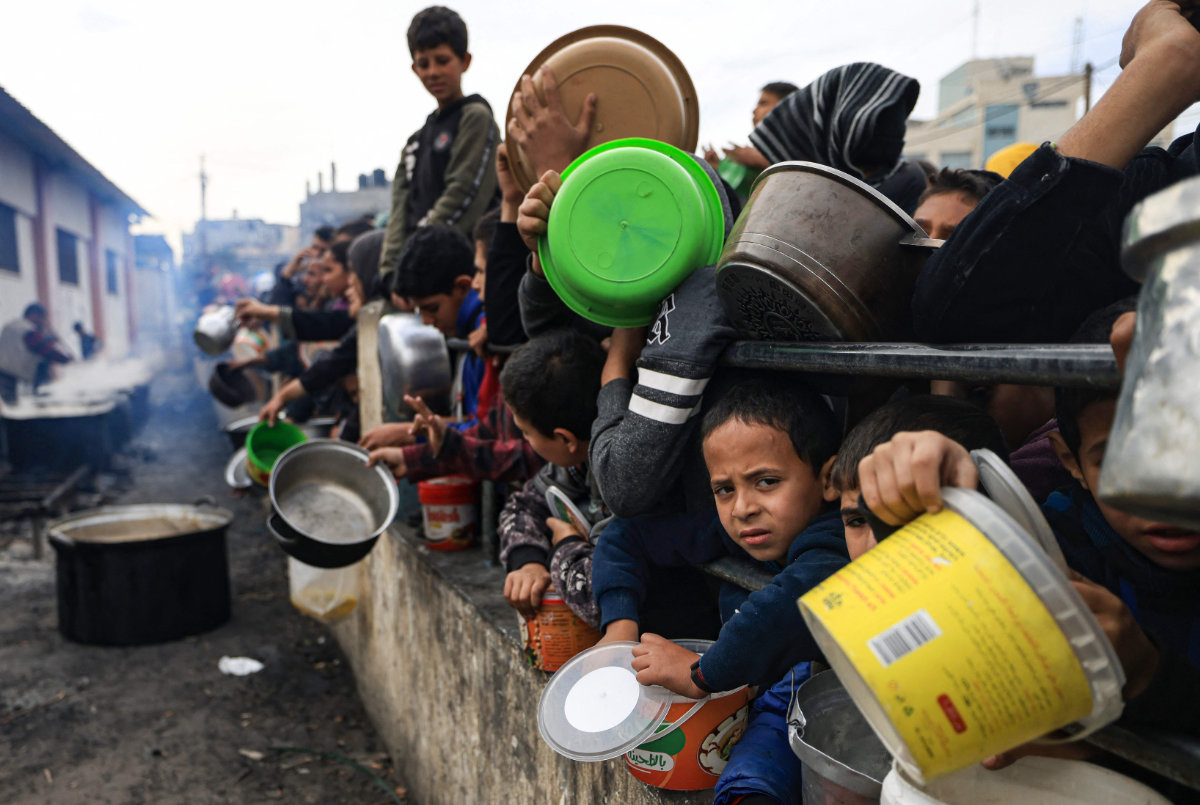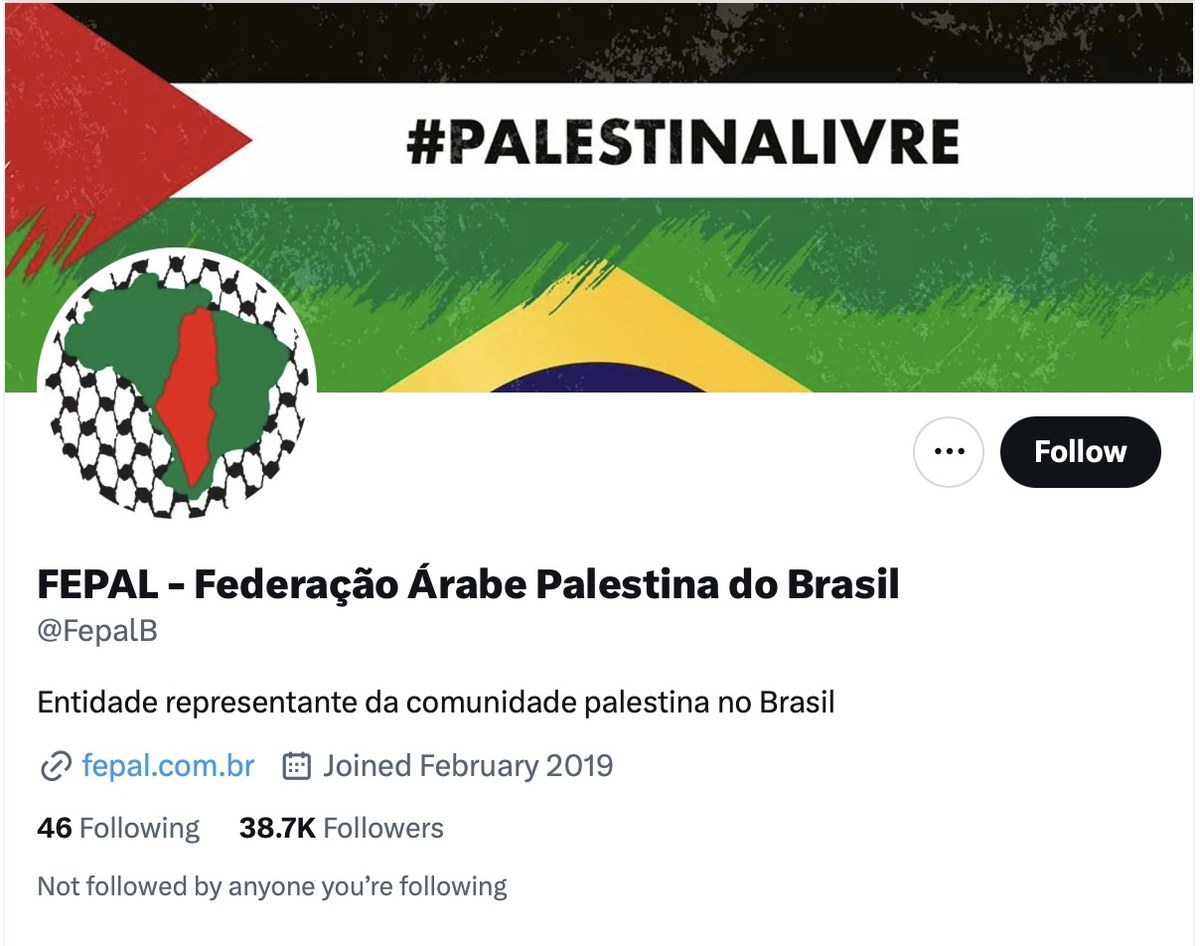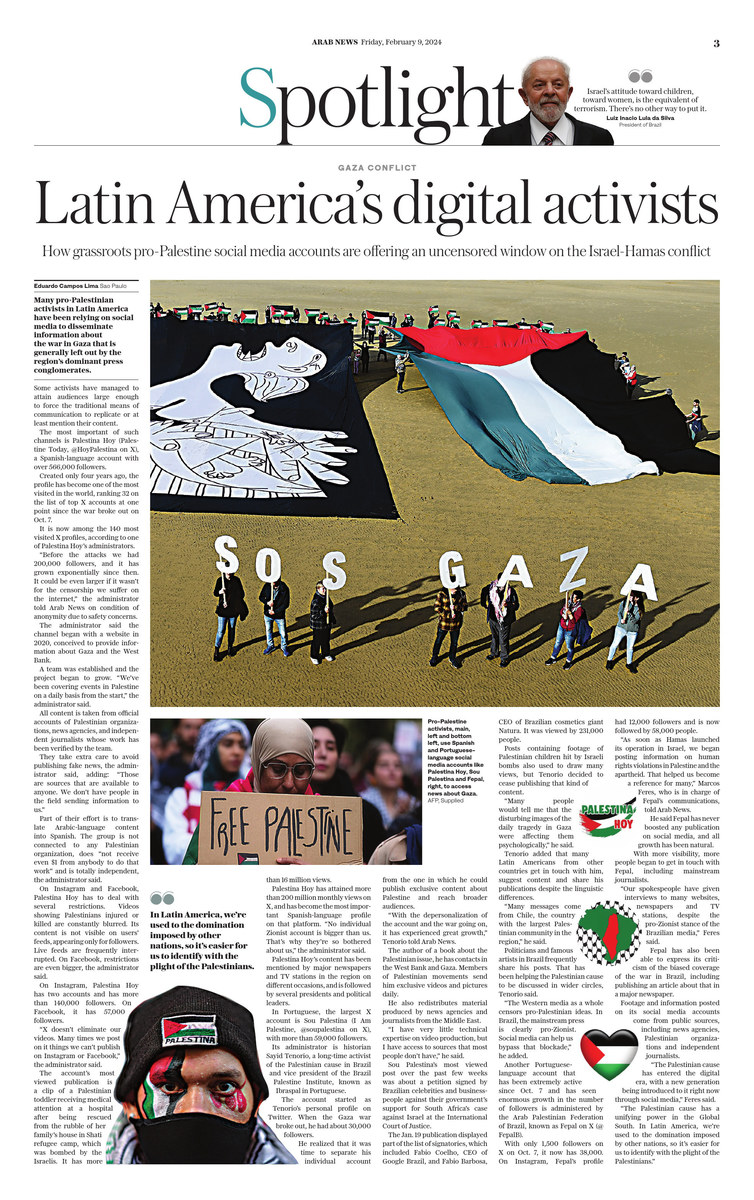SAO PAULO: Many pro-Palestinian activists in Latin America have been relying on social media to disseminate information about the war in Gaza that is generally left out by the region’s dominant press conglomerates.
Some activists have managed to attain audiences large enough to force the traditional means of communication to replicate or at least mention their content.
The most important of such channels is Palestina Hoy (Palestine Today, @HoyPalestina on X), a Spanish-language account with over 566,000 followers.

Created only four years ago, the profile has become one of the most visited in the world, ranking 32 on the list of top X accounts at one point since the war broke out on Oct. 7.
It is now among the 140 most visited X profiles, according to one of Palestina Hoy’s administrators.
“Before the attacks we had 200,000 followers, and it has grown exponentially since then. It could be even larger if it wasn’t for the censorship we suffer on the internet,” the administrator told Arab News on condition of anonymity due to safety concerns.
The administrator said the channel began with a website in 2020, conceived to provide information about Gaza and the West Bank.
A team was established and the project began to grow. “We’ve been covering events in Palestine on a daily basis from the start,” the administrator said.

Members of the Palestinian community in Venezuela take part in a protest against Israel's military operations in Gaza and in support of the Palestinian people at Bolivar Square in Caracas on October 12, 2023. (AFP)
All content is taken from official accounts of Palestinian organizations, news agencies, and independent journalists whose work has been verified by the team.
They take extra care to avoid publishing fake news, the administrator said, adding: “Those are sources that are available to anyone. We don’t have people in the field sending information to us.”
Part of their effort is to translate Arabic-language content into Spanish. The group is not connected to any Palestinian organization, does “not receive even $1 from anybody to do that work” and is totally independent, the administrator said.
On Instagram and Facebook, Palestina Hoy has to deal with several restrictions. Videos showing Palestinians injured or killed are constantly blurred. Its content is not visible on users’ feeds, appearing only for followers. Live feeds are frequently interrupted. On Facebook, restrictions are even bigger, the administrator said.

People take part in a protest in support of Palestinians in Valencia, Carabobo state, Venezuela, on October 13, 2023 amid Israeli air strikes on Gaza in reprisal for a surprise Hamas attack on October 7, 2023. (AFP)
On Instagram, Palestina Hoy has two accounts and has more than 140,000 followers. On Facebook, it has 57,000 followers.
“X doesn’t eliminate our videos. Many times we post on it things we can’t publish on Instagram or Facebook,” the administrator said.
The account’s most viewed publication is a clip of a Palestinian toddler receiving medical attention at a hospital after being rescued from the rubble of her family’s house in Shati refugee camp, which was bombed by the Israelis. It has more than 16 million views.
Palestina Hoy has attained more than 200 million monthly views on X, and has become the most important Spanish-language profile on that platform. “No individual Zionist account is bigger than us. That’s why they’re so bothered about us,” the administrator said.
Palestina Hoy’s content has been mentioned by major newspapers and TV stations in the region on different occasions and is followed by several presidents and political leaders.
In Portuguese, the largest X account is Sou Palestina (I Am Palestine, @soupalestina on X), with more than 59,000 followers.

Its administrator is historian Sayid Tenorio, a long-time activist of the Palestinian cause in Brazil and vice president of the Brazil Palestine Institute, known as Ibraspal in Portuguese.
The account started as Tenorio’s profile on Twitter. When the Gaza war broke out, he had about 30,000 followers.
He realized that it was time to separate his individual account from the one in which he could publish exclusive content about Palestine and reach broader audiences.
“With the depersonalization of the account and the war going on, it has experienced great growth,” Tenorio told Arab News.
The author of a book about the Palestinian issue, he has contacts in the West Bank and Gaza. Members of Palestinian movements send him exclusive videos and pictures daily.

Protesters rally in support of Palestinians at Camoes square in Lisbon on October 9, 2023 after the Palestinian militant group Hamas launched an attack on Israel. (AFP/File)
He also redistributes material produced by news agencies and journalists from the Middle East.
“I have very little technical expertise on video production, but I have access to sources that most people don’t have,” he said.
Sou Palestina’s most viewed post over the past few weeks was about a petition signed by Brazilian celebrities and businesspeople against their government’s support for South Africa’s case against Israel at the International Court of Justice.
The Jan. 19 publication displayed part of the list of signatories, which included Fabio Coelho, CEO of Google Brazil, and Fabio Barbosa, CEO of Brazilian cosmetics giant Natura. It was viewed by 231,000 people.
Posts containing footage of Palestinian children hit by Israeli bombs also used to draw many views, but Tenorio decided to cease publishing that kind of content.
“Many people would tell me that the disturbing images of the daily tragedy in Gaza were affecting them psychologically,” he said.

Palestinian children wait to collect food at a donation point in a refugee camp in Rafah in the southern Gaza Strip. (AFP/File)
Tenorio added that many Latin Americans from other countries get in touch with him, suggest content and share his publications despite the linguistic differences.
“Many messages come from Chile, the country with the largest Palestinian community in the region,” he said.
Politicians and famous artists in Brazil frequently share his posts. That has been helping the Palestinian cause to be discussed in wider circles, Tenorio said.
“The Western media as a whole censors pro-Palestinian ideas. In Brazil, the mainstream press is clearly pro-Zionist. Social media can help us bypass that blockade,” he added.
Another Portuguese-language account that has been extremely active since Oct. 7 and has seen enormous growth in the number of followers is administered by the Arab Palestinian Federation of Brazil, known as Fepal on X (@FepalB).
With only 1,500 followers on X on Oct. 7, it now has 38,000. On Instagram, Fepal’s profile had 12,000 followers and is now followed by 58,000 people.
“As soon as Hamas launched its operation in Israel, we began posting information on human rights violations in Palestine and the apartheid. That helped us become a reference for many,” Marcos Feres, who is in charge of Fepal’s communications, told Arab News.
He said Fepal has never boosted any publication on social media, and all growth has been natural.

With more visibility, more people began to get in touch with Fepal, including mainstream journalists.
“Our spokespeople have given interviews to many websites, newspapers and TV stations, despite the pro-Zionist stance of the Brazilian media,” Feres said.
Fepal has also been able to express its criticism of the biased coverage of the war in Brazil, including publishing an article about that in a major newspaper.
Footage and information posted on its social media accounts come from public sources, including news agencies, Palestinian organizations and independent journalists.
“The Palestinian cause has entered the digital era, with a new generation being introduced to it right now through social media,” Feres said.
“The Palestinian cause has a unifying power in the Global South. In Latin America, we’re used to the domination imposed by other nations, so it’s easier for us to identify with the plight of the Palestinians.”




























